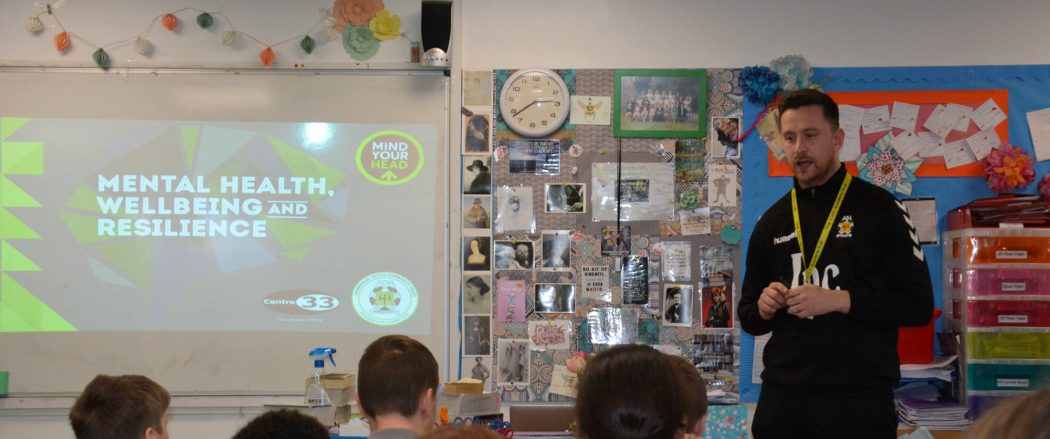Cambridge United has established a secondary school mental health project to improve well-being and help young people deal better with stress and anxiety. The ‘Mind Your Head’ pilot has been running since January 2018 in central Cambridge secondary schools. It is part of the Club’s wider commitment to promoting positive mental health at the Club and in the community.
In the current climate of recovering from the pandemic, The Club is, however, wanting to extend its programme offer to more schools across Cambridgeshire and Peterborough to support them to increase mental health literacy and to provide young people with strategies to develop their own resilience.
‘Mind Your Head’ is FREE to all state schools and is delivered through Cambridge United Community Trust in partnership with Cambridge youth mental-health charity Centre 33. The programme provides lessons that aim to help destigmatize mental health, educate young people about how to deal with stress and also encourage young people to discuss how social media can both positively and negatively affect their well-being.
The programme, designed for Year 8/9 students (aged 12 -14), uses the brand of Cambridge United as well as video content and lesson visits from footballers although it can be adapted to comply with the social distancing and safety requirements that are now common place.
There are six sessions which cover the topics of:
An Introduction to Mental Health, Wellbeing & Resilience
Recognising Signs of Mental Health Concerns
The Benefits of Talking
The Impact of Social Media on Wellbeing
Coping with Stress
Collaboration & Community
Although Mind Your Head has traditionally been classroom based and delivered by the Cambridge United Mental Health officer, it is now available to be delivered directly by school staff. The only requirement is that participating schools agree to complete a pre and post survey to assist with the monitoring and evaluation of the programme which to date has been recognised as an example of successful practice based evidence in an all parliamentary report for A Fit and Healthy Childhood.
Academic research on the programme has also shown that Mind Your Head provides a statistically significant increase in mental health literacy and as a result it has recently been awarded the Community Project of the Year award for all League Two football clubs by the English Football League.
For each of the six lesson themes there are presentations and teaching scripts available and a 60 minute training session will be organised remotely to enable teachers to become familiar with the materials and ask any questions.
A sample presentation from the programme can be found here:
Sample PresentationA sample lesson plan from the programme can be found here:
Sample Lesson PlanDickon Bevington, Medical Director at the Anna Freud Centre and a Consultant Psychiatrist for Cambridgeshire and Peterborough NHS Foundation Trust said: “In sport it is quite ‘normal’ to talk about strains and fractures to bones and ligaments, but if we can make it just as normal to talk about the strains and fractures that can happen in anyone’s mind, this will open the door to getting earlier help for many young people, protecting them against developing more serious conditions.”
Graham Daniels, Director of Football at Cambridge United and Chair of Cambridge United Community Trust said: “We want Cambridge United to take a leadership position on mental health within the game and within our community. Everyone has mental health. We can all have our ups and downs. We believe it is particularly important to help equip young people with the skills to deal with the challenges they inevitably face as they grow up. It all forms part of our wider effort as a Club to show the positive power of football throughout the community.”
Josh Turner, one of the pupils taking part from Trumpington Community College said: “Footballers coming in to tell us about mental health is actually quite profound because they are people that children look up to and they are some people’s idols. Them telling us that they sometimes can struggle with mental health is good to listen to and good for our own understanding.”
To find out more about the programme and how to get involved click here [email protected]



